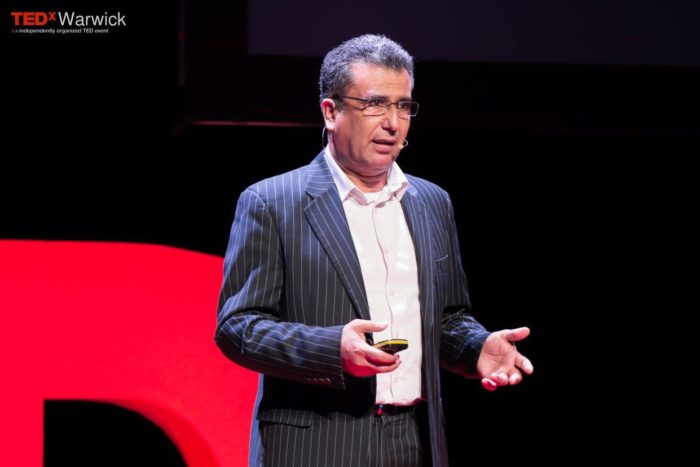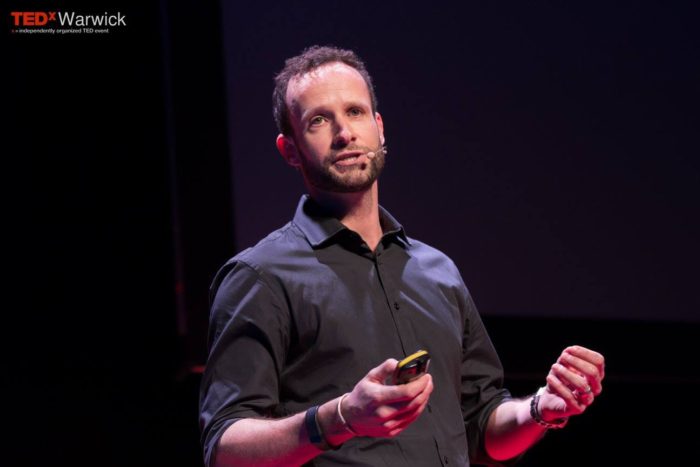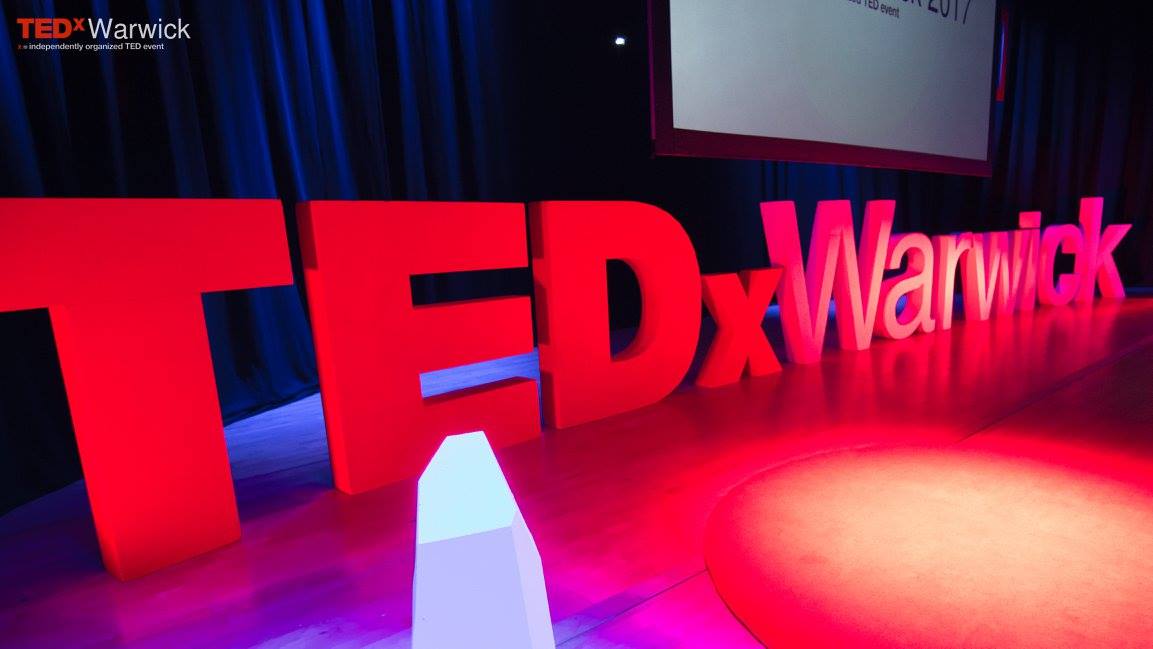TEDxWarwick 2017: Breaking Boundaries
The theme of 2017’s TEDxWarwick conference was ‘Breaking Boundaries’, and the conference did just that. Sixteen speakers ranging from physicists to humanitarians, artists and philosophers spoke on uniquely interesting and important topics, all of which embodied the sentiment of boundary breaking.
The day began with a memorable talk by Jack Romero. Romero founded British Mediterranean Airways after leaving his native land of Lebanon, where he fought in the civil war as a child-soldier. He landed in London with £90 to his name, but after years of homelessness and sheer perseverance, he returned to his family having just sold his airline for £30 million to BMI. One motif ran true throughout Romero’s talk: if you want something enough, you find a way to make it work.

Katy Emck OBE also delivered an inspiring talk. Emck is the founder of Fine Cell Work, an enterprise which commissions needlework to prisoners. Their creations are then sold to organisations such as the V&A and Tate modern. “There is a need for everyone to express personhood…even in the harshest prisons”, stated Emck, who hopes to inject creativity and belonging into places that are otherwise harsh and lonely.
One motif ran true throughout Romero’s talk: if you want something enough, you find a way to make it work.
Boundary breaking can take many forms, including breaking the boundaries of privacy. This happens to us all on a second by second basis– every time we use the internet, our online presence is tracked. Mark Farid vowed to try to live a life of privacy. Paradoxically, he did so by giving away all his passwords. Farid eradicated his online footprint for six months, but stated that during this time he lost friends and ended up resorting to drug use. “In my attempt to erase my digital footprint, my social and economic life were negatively affected”. Thus, Farid decided to take a different path. He created an exhibition that documented his every online move for a month, erasing all the privacy he’d sought to attain. “The month in which I had no digital privacy whatsoever was the happiest for me”, stated Farid. From one form of privacy to another, Sarah Shenker shared the danger of imposing ourselves on the land of uncontacted tribes: “genocides will be completed if the remains of their land are not protected… we must guarantee their right to live and choose…a right enshrined in human morality”.
The month in which I had no digital privacy whatsoever was the happiest for me.
On a different note, Kate Devlin discussed the possibility of sex robots (yup, that’s right). Devlin discussed how such an innovation could be used for many benefits, such as sex therapy and the rehabilitation of sex offenders. She also made pertinent of the parity of the sexes: “Women’s sexuality has been side-lined for years…how can we create sex technology that is fair, unbiased and equal?”.
After a lunch break that included question-time with some of the speakers, the talks resumed, opening with the speaker I was personally most excited for: Ed Charles, the producer of Planet Earth II. Ed delved into the trials and tribulations of wildlife documentation and what it takes to get viewings surpassing 30 million. “Passion, hunger, innovation…the blind dogged perseverance of a team driven by a wild passion for the animals”, Ed asserted.

Onto astounding innovations within medicine and genetics, Andrea Crisanti is a professor of molecular biology at Imperial College London and has developed a ground-breaking mutation that could save thousands of lives. By using a method called head to toe reparation, mosquito’s DNA can be mutated so that in time, the majority of the insects will be male, therefore curbing the spread of malaria.
Marguerite Barankitse has also saved thousands of lives. She took 10,000 children into her care during the 10 years following the 1993 breakout of civil war in Burundi, and has been breaking the boundaries of selflessness ever since. She has also surpassed language boundaries (Barankitse told the audience that although she was not confident speaking English, she would try, which was greeted with an eruption of applause). Baranktise got two standing ovations during her talk, as well as managing to get the whole crowd of 1200 to sing John Lennon’s ‘Imagine’. She finished her talk with a powerful message: “to our young people, you are our richness, you are our hope”.
Irem Ergun shared similar messages of acceptance and care. She is the co-founder of Project Virtuous Triangle, an initiative that pairs university students with refugees to foster education and development: “Let’s not sit around and watch the crisis, let’s help more people in need, let’s break boundaries”, Ergun urged an attentive audience.
Let’s not sit around and watch the crisis, let’s help more people in need, let’s break boundaries.
The day rounded off with a man who has certainly overcome many personal boundaries, Miles Hilton-Barber. Miles has climbed Mt Kilimanjaro, completed both the hottest and coldest ultra-marathon on earth and flown in a microlyte from England to Australia (to name but a few), all while blind. “The only limits in life are those you accept yourself” Miles iterated throughout his talk. He was the second speaker to receive a standing ovation, and it was unanimous that his talk was a truly inspirational way to end a boundary breaking day.
- Image credits: Facebook/ TEDxWarwick

Comments